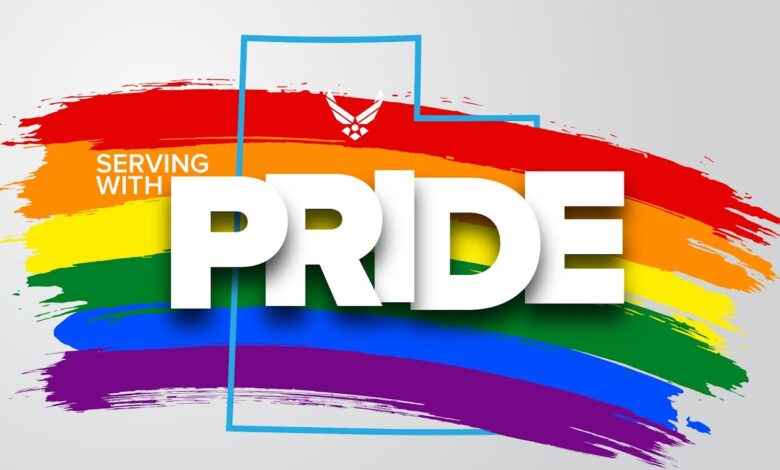How Bostonians are Supporting LGBT+ Rights

Boston has a vibrant and supportive LGBTQ+ community with a rich history of activism and advocacy. The city is known for its inclusive atmosphere and numerous resources for LGBTQ+ individuals. Boston hosts one of the largest pride celebrations in the country, the Boston Pride Parade and Festival, which takes place every June. The Boston LGBTQ+ Community Center offers a range of services, including support groups, social events, and health resources.
There are organizations dedicated to LGBTQ+ rights and support, such as the Boston Alliance of LGBTQ+ Youth (BAGLY) and the Fenway Health Center, which provides comprehensive healthcare services. The city has various LGBTQ+-friendly bars, clubs, and cultural events, including film festivals, theater productions, and drag shows. Massachusetts has strong legal protections for LGBTQ+ individuals, including anti-discrimination laws and marriage equality. Overall, Boston is considered a welcoming and progressive city for the LGBTQ+ community.
Boston has a vibrant and supportive LGBTQ+ community with a rich history of activism and advocacy. The city is known for its inclusive atmosphere and numerous resources for LGBTQ+ individuals. Boston hosts one of the largest Pride celebrations in the country, the Boston Pride Parade and Festival, which takes place every June. The Boston LGBTQ+ Community Center offers services, which include support groups, social events, and health resources.
There are organizations dedicated to LGBTQ+ rights and support, such as the Boston Alliance of LGBTQ+ Youth (BAGLY) and the Fenway Health Center, which provides comprehensive healthcare services. The city has various LGBTQ+-friendly bars, clubs, and cultural events, including film festivals, theater productions, and drag shows. Massachusetts has strong legal protections for LGBTQ+ individuals, including anti-discrimination laws and marriage equality. Overall, Boston is considered a welcoming and progressive city for the LGBTQ+ community.
The Boston Alliance of Gay, Lesbian, Bisexual and Transgender Youth (BAGLY), for example, provides support and advocacy for LGBTQ+ youth. BAGLY is a prominent organization dedicated to supporting LGBTQ+ youth in the Greater Boston area. BAGLY’s mission is to provide resources, support, and advocacy for LGBTQ+ youth. The organization aims to create safe spaces where young people can explore their identities, connect with peers, and access vital services.
BAGLY offers a wide range of services and programs, including peer-led support groups that provide a safe and confidential space for LGBTQ+ youth to discuss issues related to identity, relationships, and community. They also offer workshops and resources on sexual health, mental health, substance use prevention, and other wellness topics. Opportunities for youth to engage in advocacy efforts, leadership development programs, and activism within the LGBTQ+ community. BAGLY also offers social events, recreational activities, and cultural outings that promote camaraderie and a sense of belonging.
BAGLY was founded in 1980, making it one of the oldest LGBTQ+ youth organizations in the United States. It has played a significant role in supporting young people through various social and political changes affecting the LGBTQ+ community. BAGLY collaborates with other organizations, schools, healthcare providers, and community stakeholders to promote LGBTQ+ inclusivity and support. They also provide training and resources to educate the broader community about LGBTQ+ issues. The organization has had a positive impact on thousands of LGBTQ+ youth over the years, empowering them to navigate challenges, build resilience, and thrive in their identities.
For LGBTQ+ youth in the Boston area, BAGLY serves as a crucial resource for support, education, advocacy, and community building. It plays a vital role in promoting inclusivity and acceptance within the local community and beyond. The city hosts several events throughout the year celebrating LGBTQ+ pride and culture. The Boston Pride Parade and Festival in June is a major event, drawing participants from across the region.
The Boston Pride Parade and Festival is a significant annual event celebrating LGBTQ+ pride and culture in the Greater Boston area. Here are some key aspects of the Boston Pride Parade and Festival. The Boston Pride Parade has a long history, dating back to the early 1970s when it began as a march for LGBTQ+ rights and visibility. Over the years, it has grown into a large-scale event that attracts participants from all over New England and beyond.
The parade and festival typically take place in June, aligning with LGBTQ+ Pride Month. The parade route usually starts in Copley Square and winds through the streets of Boston, ending at Boston City Hall Plaza where the festival is held. The parade welcomes participants from diverse backgrounds, including LGBTQ+ individuals, allies, community organizations, businesses, and political figures. It’s a vibrant display of solidarity and celebration, showcasing the diversity and strength of the LGBTQ+ community.
The Boston Pride Festival at City Hall Plaza features live performances, entertainment, food vendors, informational booths from LGBTQ+ organizations, and activities for all ages. It’s a festive atmosphere where people come together to celebrate, connect, and support LGBTQ+ rights and equality. Each year, the Pride Parade and Festival highlight different themes and messages that reflect social and political issues affecting the LGBTQ+ community. It serves as a platform for advocacy, visibility, and solidarity, promoting messages of inclusivity, acceptance, and equality.
The Pride Parade and Festival in Boston contribute to the visibility and acceptance of LGBTQ+ individuals and issues in the broader community. It fosters a sense of belonging and empowerment among participants and reinforces Boston’s reputation as a welcoming city for LGBTQ+ individuals. Overall, the Boston Pride Parade and Festival are pivotal events that not only celebrate LGBTQ+ pride and culture but also advocate for LGBTQ+ rights and social justice. They play a significant role in fostering community spirit, promoting awareness, and advancing the cause of equality for all.
There are also smaller events and gatherings throughout the year. Boston has a vibrant LGBTQ+ nightlife scene, particularly centered around the South End and Jamaica Plain neighborhoods. There are numerous bars, clubs, and cafes that cater specifically to the LGBTQ+ community. Massachusetts was one of the first states to legalize same-sex marriage. Boston has legal protections against discrimination based on sexual orientation and gender identity in employment, housing, and public accommodations.
Boston is home to several healthcare providers and clinics that specialize in LGBTQ+ healthcare needs. Fenway Health is a prominent example, offering comprehensive physical and mental health services. Generally, LGBTQ+ individuals in Boston report feeling relatively safe and accepted. The city’s diverse population contributes to a more inclusive environment, although challenges like discrimination and disparities in healthcare access still exist.
Beyond social and cultural activities, Boston offers resources like LGBTQ+ legal aid, counseling services, and educational workshops aimed at supporting the community. Living as LGBTQ+ in any city, including Boston, involves a blend of social, legal, and personal factors. Massachusetts, including Boston, has legal protections against discrimination based on sexual orientation and gender identity in areas such as employment, housing, and public accommodations. This provides a supportive legal framework for LGBTQ+ individuals.
Boston has a strong LGBTQ+ community with various organizations, social groups, and community centers that provide support, resources, and a sense of belonging. These communities play a crucial role in providing social connections and advocating for LGBTQ+ rights. Boston offers a vibrant LGBTQ+ social scene with bars, clubs, cafes, and events catering specifically to the community. Neighborhoods like the South End and Jamaica Plain are known for their LGBTQ+ friendly establishments and cultural activities. Boston is home to healthcare providers and clinics that specialize in LGBTQ+ healthcare needs.
Organizations like Fenway Health offer comprehensive medical, mental health, and support services tailored to LGBTQ+ individuals. Boston hosts educational institutions that actively support LGBTQ+ students and offer resources such as LGBTQ+ centers, support groups, and awareness campaigns. This contributes to a more inclusive environment within academic settings. Despite progress, challenges like discrimination, stigma, and disparities in health care access can still exist for LGBTQ+ individuals in Boston. Advocacy efforts continue to address these issues and promote greater awareness and acceptance.
Events like the Boston Pride Parade and Festival celebrate LGBTQ+ pride and visibility, providing opportunities for community members to come together, advocate for rights, and celebrate diversity. Overall, living as LGBTQ+ in Boston generally offers a supportive environment with legal protections, community resources, social opportunities, and cultural events that contribute to a sense of inclusion and acceptance. However, individual experiences may vary based on factors like identity, socioeconomic status, and personal circumstances. Ongoing advocacy and community engagement remain essential in promoting full equality and acceptance for LGBTQ+ individuals in Boston and beyond.


